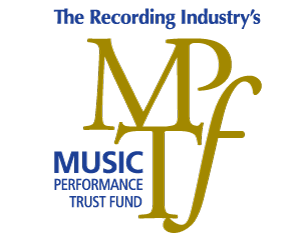
Ray Hair – AFM International President
August 1st, 2022 / I was a 19-year-old college student when I first came in direct contact with the American Federation of Musicians.
Of course, I’d heard about the musicians’ union and how it stood for good faith and fair dealing in the music business between musicians and unscrupulous employers, managers, and booking agents. As a young freelance musician, I had seen firsthand what the world was like, working weekends while I finished high school and began working my way through college. It was great fun playing the music, but sometimes was a hassle getting paid.
At home and on the road, rocking along in the nightclubs, at civic auditoriums, fraternity houses, and doing one-nighters across the Deep South—Mississippi, Alabama, Louisiana, and Georgia—as well as in Florida and Tennessee, there were times when the money was quite good. At other times, it was barely enough to afford to do the gig.
One day, while a sophomore at the University of Southern Mississippi, I was asked to sub on an on-campus gig scheduled at the Methodist Youth Center. The other musicians were students and faculty. I was excited to have the opportunity to work with them. Before the engagement began, a gentleman who was well-acquainted with the other musicians, but not with me, passed around a green snap-out form for our signature.
As he approached me with the green sheet, he asked, “Are you a union member?” That was another first, having never been asked that question before.
“No, sir, I’m not, but I’m interested in becoming a union member,” I replied.
His gaze softened and an attitude change became apparent as he placed the green sheet on my floor tom-tom and pointed toward a signature line. “Sign right there and fill in your name and mailing address so we can get you paid,” he said. I sensed there might be an opportunity to develop a productive relationship.
“My name is Fritz Uher,” he continued. I am the secretary of Local 568 in Hattiesburg. This is what we call a Trust Fund [Music Performance Trust Fund] job. We will classify you as a student on the payroll form. Thanks for being here today. We are very interested in having you as a member.”
I was impressed. It was the first time in my six short years as a freelance musician that I had ever seen a payroll sheet for a job, or a third-party paymaster who would issue a check by mail. It was organized, and it was obvious there was a larger organization—the musicians’ union—that appeared to have some authority over the process. Yes, I wanted to be the best musician I could be, but I also had a passion to understand the business of music. Musicians’ union? Trust Fund? Where did this money come from? How could I get more of it?
This Trust Fund gig was a radical departure from the payday rule-of-thumb in those days, which was that you got paid in cash at the end of the gig, after packing up, as you were headed out the door. It also showed that there was another, seemingly “legitimate” side to the business of music making. I wanted to know more about it.
A few months later, at the start of the summer break, I was asked to join a popular high-energy rhythm and blues band that was headed to Florida. The word came from the band’s manager that I needed a union card. An exclusive agency agreement was being signed with New York-based Associated Booking Corporation and I was instructed to immediately become a member of the American Federation of Musicians. Remembering my introduction to the union via the campus Trust Fund engagement, I managed to quickly schedule a visit with Uher. He managed Local 568 from his automotive body shop out on US Highway 49 toward Biloxi.
After explaining my need to join the AFM right away, Fritz whipped out an application, which I filled out in a flash, anxiously awaiting his approval. “I’ll have to get this cleared by the local’s executive board, which should not be a problem,” he said. I learned that the local union board consisted of the head of the university’s instrumental music department and other faculty members and musicians with whom I had studied and performed. I was relieved, and happy that I was finally joining the union, and that I was among friends. On the road, I learned how necessary AFM membership could be.
When I returned to college that fall, my union status opened the door to good union gigs. Those regional engagements became another source of income and networking, along with additional Trust Fund opportunities.
Later, as I relocated to Texas to pursue graduate school and jazz studies at the University of North Texas, I joined Local 72 in Fort Worth and eventually Local 147 in Dallas. I was amazed how quickly I was called for a Trust Fund job—a jazz gig at a summer youth camp facility. I was even more amazed at the strong, diverse, locally administered Music Performance Trust Fund (MPTF) programs that provided needed employment and a pathway for developing new musical and personal connections with other great musicians.
My introduction to the American Federation of Musicians came courtesy of the MPTF. For me, Trust Fund opportunities created new and lasting musical relationships, additional employment, and a broader network of contacts in the community of freelance musicians. Ask your local if it has a program of MPTF venues and co-sponsors and how you can get involved. For many musicians, MPTF could be the start of a beneficial association with the AFM.
